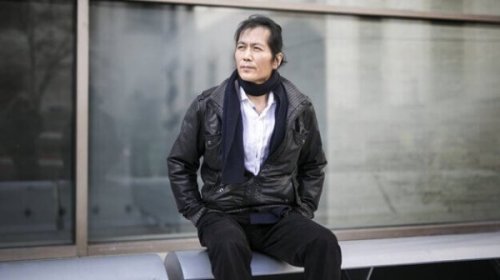Beauty is Accepting Who You Are


Written and verified by the psychologist Valeria Sabater
There’s nothing more attractive than accepting who you are. There’s no greater satisfaction than discovering your value, strengths, and needs. Only then will you make the best decisions, decisions that will make you feel free and filled with that particular beauty that makes you unique and genuine.
Zen master Thich Nhat Hanh reminds us in his books that you’re at your most beautiful when you act in conjunction with your inner self. In this state, you don’t seek acceptance from others. Instead, your own heart and essence validate you.
Nevertheless, many of us still haven’t found or recognized our true selves. It’s almost like a strange spell. You only appreciate yourself when others validate you. You rely on others to give you positive reinforcement with their words, gestures, comments, and recognition. If that doesn’t happen, or it doesn’t happen very often, you might feel invisible. Your self-esteem starts unraveling at the seams.
On the other hand, Korean philosopher Byung-Chul Han tells us that we’re “burning” in the hell of sameness. In his book, The Expulsion of the Other: Society, Perception, and Communication Today, he invites the reader to reflect on this idea. We’re losing our ability to value the uniqueness of each person, the things that set us apart from other people. Byung-Chul Han believes we should be more concerned with our identity than with satisfying other people’s desires.
“Believing in our hearts that who we are is enough is the key to a more satisfying and balanced life.”
-Ellen Sue Stern-

Accepting who you are: The art of true attractiveness
Accepting who you are takes time. However, when you get there, everything changes. You leave the constraints of conventionalism behind, along with all the limits you put on your heart, mind, and body. All your worries about making other people like you and living up to their expectations just disappear.
When you reach this pinnacle of personal development, in which Maslow placed self-actualization, the world looks different. You have a better perspective and a sense of inner peace. In the eyes of other people, these traits are as attractive as they are desirable.
However, going back to Byung-Chul Han’s theories, there’s something that you should keep in mind. Sometimes you perceive yourself as a completely actualized person because you have achieved a level of development that society defined for you. At some point, however, you’ll realize that you aren’t at the top of a mountain, but instead in a deep chasm.

Our consumerist society and even our education system steer us toward material success. This path has nothing to do with self-actualization.
If you truly want to accept who you are, you have to conquer other territories. We’re talking about things like self-knowledge, self-esteem, self-love, assertiveness, the ability to achieve, and emotional independence, among others.
Three steps to accepting who you are
According to a Free University of Berlin study from Ulrich Orth and Ruth Yasemin Erol, people reach their highest self-esteem levels in old age. To be more specific, most people reach their highest self-esteem levels in their 60s. Why don’t we get there sooner? Why don’t we develop this all-important “muscle” of personal development when we’re young?
This is due to many factors. However, beyond the things that might limit you and make it hard to accept who you are, lies the need for change. This is the need to be proactive and work on your own self-esteem and self-actualization. Here are three steps that can help you make that happen.
Improve your attributional style
Your attributional style is how you relate to your achievements or failures. When you achieve something, is it because others have helped you? Or is it because you worked really hard? It’s important to take the reins of your own life. To do that, you have to recognize your own value and abilities.
The only voice you should listen to is the one inside you
Your world is full of thousands of voices. Those of your family, your professors, your bosses, your co-workers, your friends, partners, social media, and even political and social gurus. Your world is chock-full of people giving you advice and telling you what to do.
Among all that noise, there’s one voice that you often silence: your own. Use some of your energy to turn down all that ambient noise every once in a while. Listen to yourself, give yourself some attention, and get in tune with your own needs.

Let your passions shape your life
If accepting who you are is a priority, follow your passion. Don’t get distracted by other people’s advice, don’t listen to what they think you should do. Get in touch with your identity and let your preferences, identity, and essence shape your life. If you try to live your everyday life in line with these principles, you’ll be more satisfied. Not only that, but you’ll be that much closer to self-actualization.
People who are brave enough to follow their own path without caring what others think always seem more attractive. That’s because the most beautiful people are those who leave conventionalism behind to be their authentic selves in every moment and circumstance.
All cited sources were thoroughly reviewed by our team to ensure their quality, reliability, currency, and validity. The bibliography of this article was considered reliable and of academic or scientific accuracy.
- Han, Byung-Chul (2017) La expulsión de lo distinto. Madrid: Herder
- Neff, K. D. (2011). Self-compassion, self-esteem, and well-being. Social and Personality Psychology Compass, 5(1), 1–12. https://doi.org/10.1111/j.1751-9004.2010.00330.x
- Orth, U., Erol, R. Y., & Luciano, E. C. (2018). Development of self-esteem from age 4 to 94 years: A meta-analysis of longitudinal studies. Psychological Bulletin, 144(10), 1045-1080. http://dx.doi.org/10.1037/bul0000161
This text is provided for informational purposes only and does not replace consultation with a professional. If in doubt, consult your specialist.








